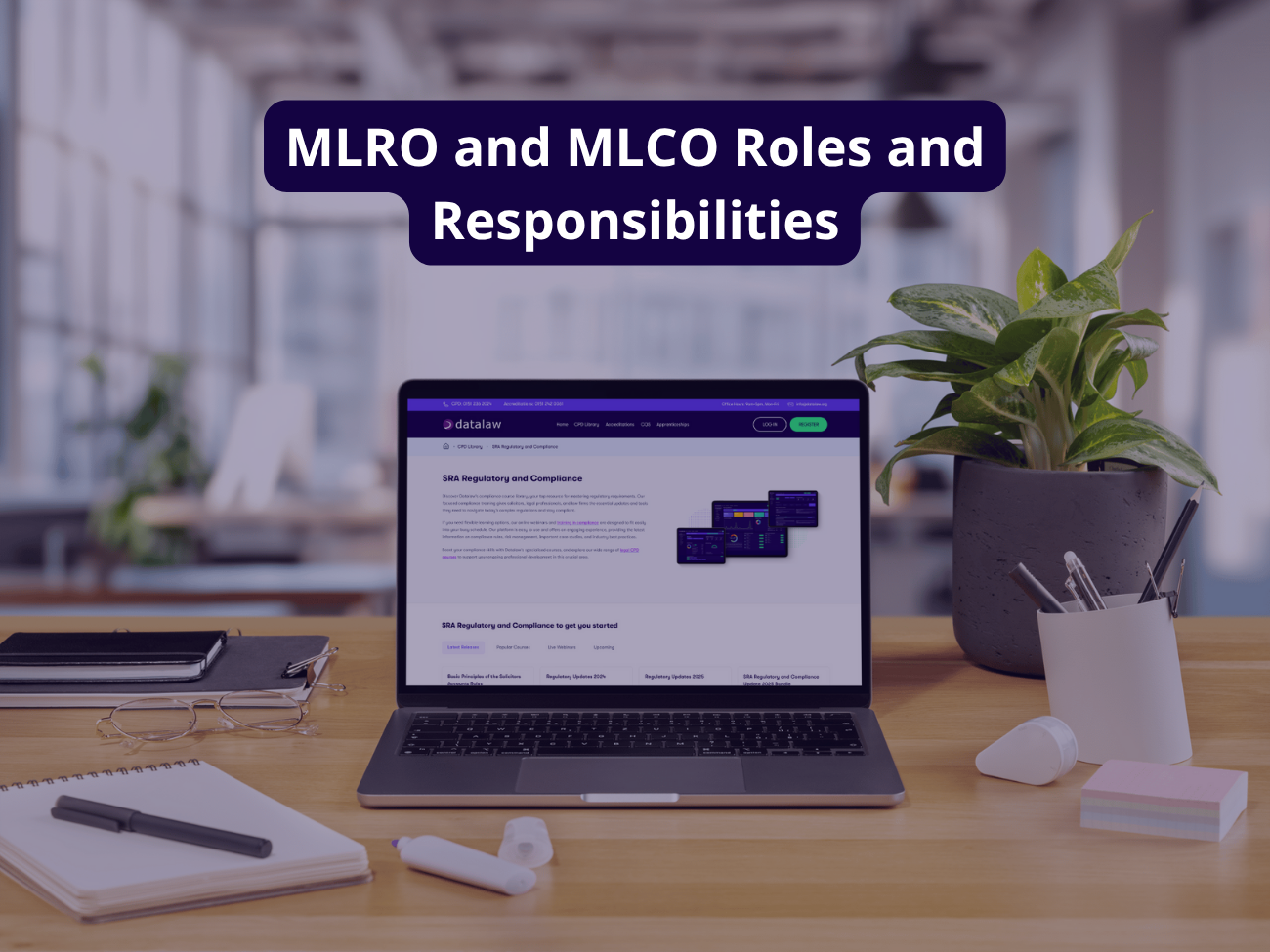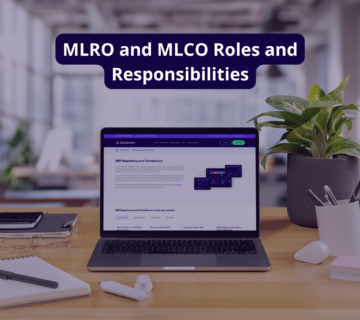In the complex landscape of financial regulations, particularly concerning anti-money laundering (AML) measures, the roles of Money Laundering Reporting Officers (MLROs) and Money Laundering Compliance Officers (MLCOs) play a pivotal role in safeguarding against illicit financial activities. These roles, mandated under various legislations such as the Proceeds of Crime Act 2002 and the Money Laundering Regulations 2017, are essential components of a firm’s compliance framework.
Download Our Free “MLRO and MLCO Roles and Responsibilities” E-Book
MLRO Responsibilities:
The MLRO is tasked with the critical duty of reporting suspicious activities to the appropriate authorities, notably the National Crime Agency (NCA), as outlined in sections 330 and 331 of the Proceeds of Crime Act 2002. Additionally, they are appointed under Regulation 21(3) of the Money Laundering Regulations 2017. This role serves as the frontline defence against money laundering within an organisation.
The scope of MLRO responsibilities encompasses:
- Safeguarding Compliance: MLROs are responsible for ensuring the firm’s adherence to AML regulations and guidelines, overseeing the implementation of robust AML policies, procedures, and controls.
- Monitoring Transactions: They monitor and analyse transactions, identifying any suspicious patterns or activities that may indicate potential money laundering or terrorist financing.
- Reporting to Authorities: MLROs are obligated to promptly report suspicious transactions or activities to the NCA, facilitating law enforcement agencies in their efforts to combat financial crimes.
MLCO Responsibilities:
In contrast, MLCOs focus primarily on the firm’s compliance with the procedural requirements stipulated in the Money Laundering Regulations 2017, under Regulation 21(1)(a). Their role is more internal-facing, ensuring that the organisation operates within the framework of AML regulations.
The key responsibilities of MLCOs include:
- Ensuring Procedural Compliance: MLCOs oversee the firm’s adherence to the procedural aspects of AML regulations, such as customer due diligence (CDD), record-keeping, and risk assessment processes.
- Training and Awareness: They are responsible for educating staff on AML policies, procedures, and regulatory requirements, ensuring that all employees understand their obligations in preventing money laundering.
- Internal Controls: MLCOs develop and implement internal controls to mitigate AML risks, conducting regular assessments to identify weaknesses and areas for improvement.
Integration within Management and Compliance Frameworks:
Both MLROs and MLCOs hold pivotal positions within the management and compliance structures of organisations. While MLROs focus on external reporting and law enforcement collaboration, MLCOs concentrate on internal compliance and risk management. Together, they form a comprehensive framework for AML compliance, working collaboratively to mitigate financial crime risks.
Relevance of Recent Changes and Developments:
Recent changes, such as those affecting Companies House and the establishment of the EU Anti Money Laundering Authority (AMLA), underscore the evolving nature of AML regulations. These developments necessitate vigilance and adaptability on the part of MLROs and MLCOs to ensure continued effectiveness in combating money laundering.
Datalaw’s MLRO and MLCO Roles and Responsibilities Course:
Embark on a journey towards mastering the essential roles of Money Laundering Reporting Officers (MLROs) and Money Laundering Compliance Officers (MLCOs) with Datalaw’s comprehensive course on MLRO and MLCO roles and responsibilities. Designed to equip professionals with the knowledge and skills necessary to navigate the intricate landscape of anti-money laundering compliance, this course delves into the core duties and obligations of MLROs and MLCOs under the prevailing regulatory framework.
Whether you’re seeking to enhance your expertise in financial crime prevention or aiming to ensure your organisation’s robust AML compliance, this course offers invaluable insights and practical guidance. Led by industry experts, participants will gain a deep understanding of the legal requirements, reporting obligations, and risk mitigation strategies integral to these critical roles. Enrol today and elevate your proficiency in safeguarding against illicit financial activities.
In conclusion, MLROs and MLCOs play indispensable roles in the fight against money laundering and financial crimes. While MLROs focus on reporting suspicious activities to authorities, MLCOs ensure internal compliance with AML regulations. Together, they form a robust defence mechanism within organisations, working to uphold the integrity of the financial system and safeguard against illicit activities. With ongoing regulatory changes and developments, their roles remain critical in maintaining AML compliance and mitigating emerging risks.


